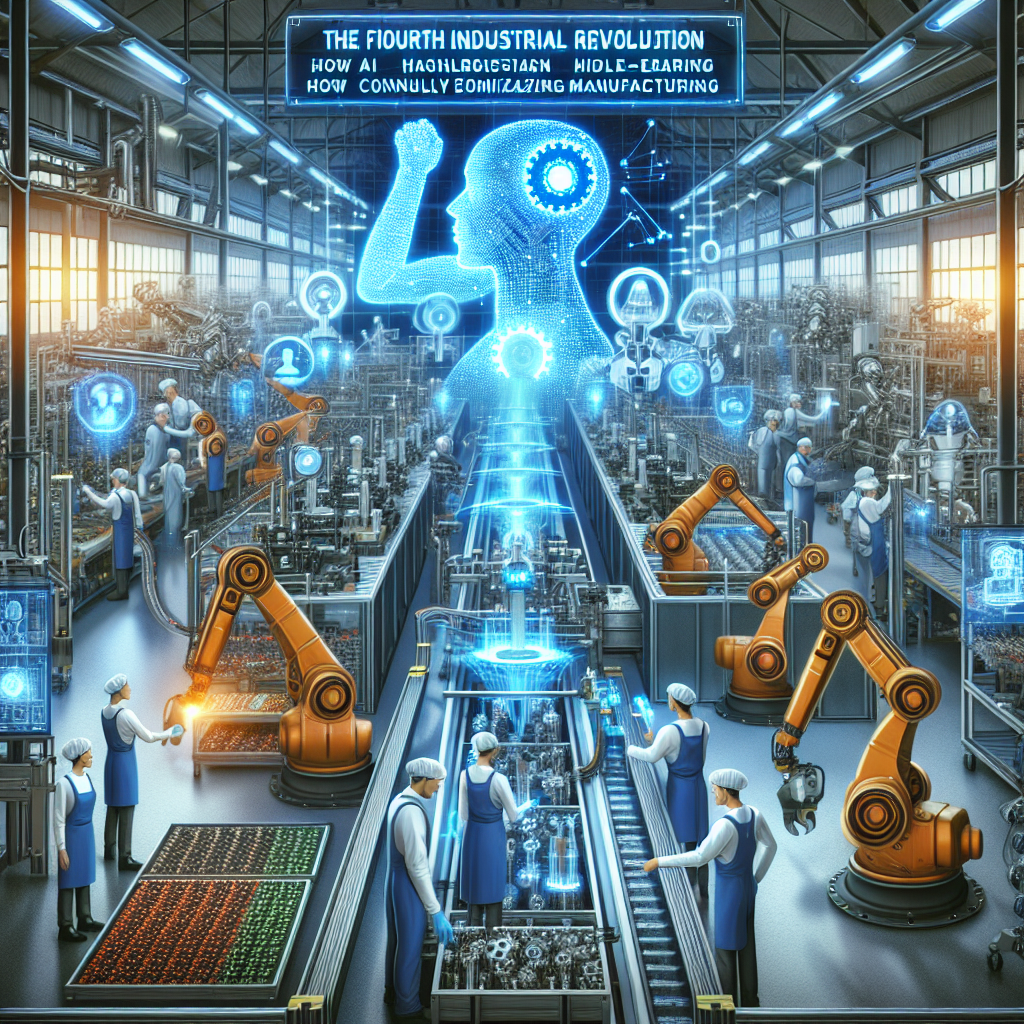Over the past few decades, we have seen rapid advancements in technology that have fundamentally changed the way we live and work. The Fourth Industrial Revolution, also known as Industry 4.0, is characterized by the fusion of digital, physical, and biological technologies. One of the key drivers of this revolution is artificial intelligence (AI), which is revolutionizing the manufacturing industry in numerous ways.
The Impact of AI on Manufacturing
AI is poised to revolutionize the manufacturing industry by improving efficiency, productivity, and cost-effectiveness. One of the key ways AI is transforming manufacturing is through predictive maintenance. By analyzing data from sensors and other sources, AI can predict when machines are likely to fail, allowing companies to schedule maintenance before breakdowns occur. This can help reduce downtime and prevent costly repairs.
AI is also being used to optimize production processes. AI-powered systems can analyze vast amounts of data to identify patterns and trends that humans may not be able to detect. This can help companies optimize their production processes, reduce waste, and improve quality.
Another key way AI is revolutionizing manufacturing is through autonomous robots. AI-powered robots can perform tasks that are dangerous or boring for humans, freeing up workers to focus on more strategic tasks. These robots can be used for tasks such as assembly, packaging, and quality control, increasing efficiency and reducing the risk of injury.
The Future of AI in Manufacturing
As AI technology continues to advance, we can expect to see even more innovations in the manufacturing industry. AI-powered systems will become increasingly sophisticated, allowing companies to automate even more tasks and make more informed decisions. This will enable manufacturers to be more agile and responsive to changing market conditions, giving them a competitive edge.
One area where AI is expected to have a big impact is in the area of customization. With AI-powered systems, manufacturers will be able to produce highly customized products at scale, offering consumers more choice and personalization. This will allow manufacturers to meet the growing demand for personalized products without sacrificing efficiency.
Conclusion
AI is revolutionizing the manufacturing industry by improving efficiency, productivity, and cost-effectiveness. From predictive maintenance to autonomous robots, AI-powered systems are helping companies optimize their production processes and stay competitive in an increasingly digital world. As AI technology continues to advance, we can expect to see even more innovations that will further transform the manufacturing industry.
FAQs
Q: What are some examples of AI Applications in manufacturing?
A: Some examples of AI Applications in manufacturing include predictive maintenance, production process optimization, and autonomous robots.
Q: How is AI helping to improve efficiency in manufacturing?
A: AI is helping to improve efficiency in manufacturing by automating tasks, optimizing production processes, and reducing downtime.
Q: What are some challenges of implementing AI in manufacturing?
A: Some challenges of implementing AI in manufacturing include data security concerns, the need for technical expertise, and resistance from workers who fear job displacement.
Quotes
“AI is not just a trend, it is a revolution that is transforming the manufacturing industry and opening up new opportunities for innovation and growth.” – John Smith, CEO of Manufacturing Solutions Inc.
#Fourth #Industrial #Revolution #Revolutionizing #Manufacturing


